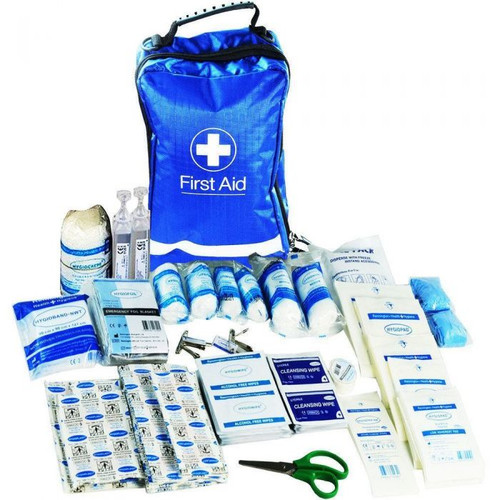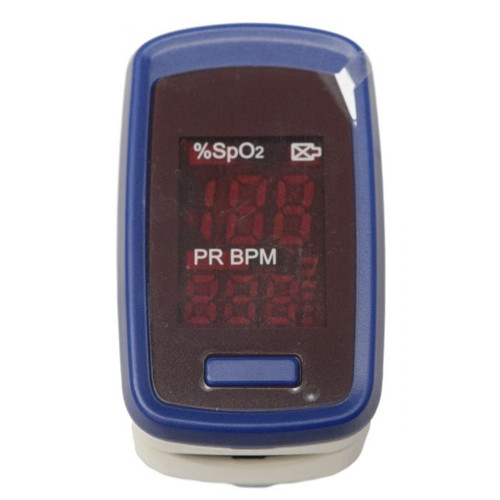Small, compact and lightweight, the Travel First Aid Belt Pouch is convenient and portable and allows the user to carry basic medical supplies with greater ease. It has a handy belt loop so can be worn about the person at all times and is fitted with a hook and loop closure for easy access.
Travel First Aid Belt Pouch Contents:
- 4 antiseptic wipes
- 20 washproof plasters
- 1 orange whistle
- 1 medium HSE wound dressing
- 1 pair of gloves
- 6 assorted safety pins
- 1 resuscitation face shield
What should be in a first aid kit for travel?
A travel first-aid kit should be prepared for treating minor injuries and illnesses. Here are some essential items to include:
Wound care:
- Adhesive bandages in various sizes (different shapes and waterproof options are good to have)
- Gauze pads and rolls
- Antiseptic wipes for cleaning wounds
- Antibiotic ointment to prevent infection
- Tweezers for removing splinters or ticks
- Safety pins for securing bandages
Pain relief:
- Pain relievers like paracetamol or ibuprofen for headaches, muscle aches, etc.
Other essentials:
- Instant cold compress to reduce swelling from minor sprains or bumps
- Antihistamines for allergic reactions to insect bites or stings
- Diarrhoea medication for upset stomachs
- Hand sanitizer to clean hands before treating wounds
- Disposable gloves for added hygiene when dealing with wounds
- Thermometer to check for fever
Medications:
- Pack any medications you routinely take.
Additional considerations:
- Insect repellent for areas with mosquitos or other biting insects
- Sunscreen and after-sun lotion for sun protection
- Rehydration salts to replenish electrolytes lost due to dehydration from heat or illness
- Tailor the contents to your trip length, destination, and activities.
- Check regulations for carrying liquids and sharp objects if flying.
Can you take a first aid kit on a plane UK?
Yes, you can take a first-aid kit on a plane in the UK, but there are some restrictions for carry-on luggage:
- Liquids, gels, and pastes: These must be in containers that hold no more than 100 ml and fit comfortably in a single, transparent, resealable plastic bag no bigger than 1 litre. This applies to items like antiseptic wipes and antibiotic ointments.
- Sharp objects: Scissors, tweezers, and other sharp objects are not allowed in carry-on luggage. Pack these in your checked luggage if needed for your trip.
Here's a breakdown of what you can pack:
Carry-on luggage:
- Bandages
- Pain relievers (tablets or capsules)
- Antihistamines (tablets or capsules)
- Diarrhoea medication (tablets or capsules)
- Hand sanitizer (under 100 ml in the designated liquids bag)
Checked luggage:
- Tweezers
- Scissors (if necessary for your trip)
- Antiseptic wipes (if the container is larger than 100 ml)
- Antibiotic ointment (if the container is larger than 100 ml)
Security regulations can change, so it's always a good idea to double-check the latest guidelines from the UK government (https://www.gov.uk/hand-luggage-restrictions) or your airline before you fly.







